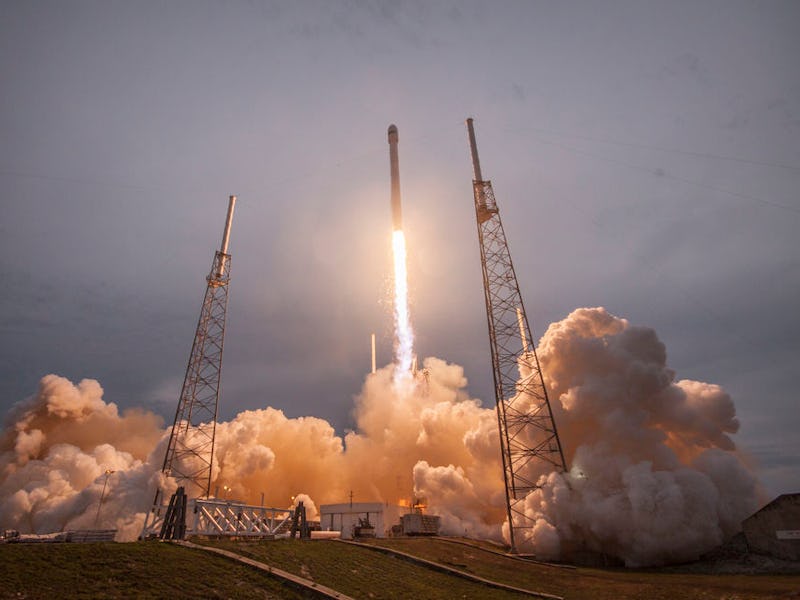Sperm is objectively pretty strange here on Earth, so imagine how it looks and acts in microgravity. A NASA scientist tells Inverse that’s exactly what astronauts on board the International Space Station (ISS) will be doing over the next few months.
The mission, dubbed Micro-11, technically began on April 1, when NASA sent frozen human and bull sperm on board a Falcon 9 rocket to the ISS. Crew members will thaw, then chemically activate the samples to prepare them for union with an egg. Astronauts will use video recording to track the sperm movements, then send them back to Earth for further analysis.
“Based on previous experiments, it seems the lack of gravity facilitates sperm mobility,” Dr. Fathi Karouia, non-rodent portfolio lead scientist for NASA’s space biology project, tells Inverse. “This is in line with other investigations on different model organisms which have shown that microgravity conditions trigger faster cell regeneration. This flight project is the first to apply proven analytical methods to assess the fertility of human and bovine sperm in spaceflight.”
Sperm samples before liftoff.
Though this is not the first time sperm has been sent into space for testing, it could offer new insights into the ways long-duration spaceflight will influence human reproduction. With tons of talk about space tourism and even trips to Mars, it makes sense to start analyzing how sperm and egg fuse in microgravity.
“This research is looking at early fundamental microgravity science,” Karouia says. “There have been several species that have gone through successful breeding in space, including frogs, salamanders, sea urchins, jellyfish, snails, medaka fish, nematode (roundworm, known as Caenorhabditis elegans), and other aquatic invertebrate animals. The aquatic invertebrates; Amphipods, Gastropods (pond snails), Ostracods and Daphnia (water flea) produced their offspring or repeated their life-cycles under microgravity during four months in space.”
It might not be long until people are banging, and by extension, having babies in space. So we might as well start looking into how that’s all going to work out, especially if some tech billionaires want to start a civilization on Mars. Thanks, NASA!
Update: An earlier version of this article attributed a quote to a NASA spokesperson rather than Dr. Karoiua. It has been updated with the correct attribution.
